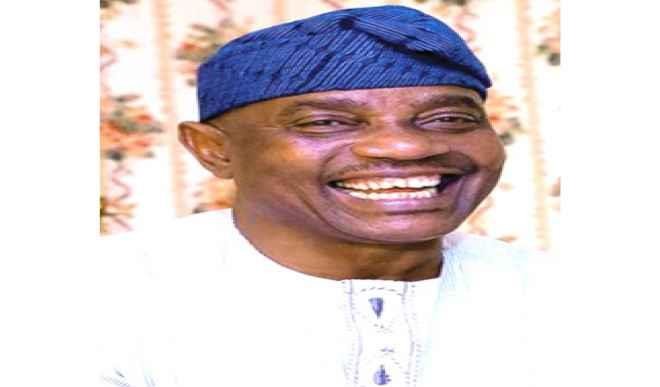Why I wrote a book on policing in Nigeria – Solomon Arase
What inspired you to write the book? During my 35 years of service, I met many members of the rank and file and they are the ones who communicate with the public. They are the ones you meet at the police stations and there was an incident where I invited a Constable to my office […]


What inspired you to write the book?
During my 35 years of service, I met many members of the rank and file and they are the ones who communicate with the public. They are the ones you meet at the police stations and there was an incident where I invited a Constable to my office because they said he couldn’t distinguish between a diplomatic plate and a commercial number plate and I asked him; weren’t you taught in school and he said he wasn’t. So you don’t expect the members of the rank and file to give what they were not given. These are things you have to be taught. It is after you are taught that you can be in a position to enforce them. Before you join any police force or security agency you have to have a Diploma in law enforcement, which means you already have an idea of what the laws say, the processes and the procedures before you join. But here, it is the reverse so there is a knowledge gap.
What challenges did you face when you were producing your book?
Time! It took me seven academic sessions to put it together. Sometimes I had to be posted from one command to the other. I started the book when I was a Commissioner of Police and it lingered until I became the IGP, but I kept at it and I kept telling myself if I abandoned it what would be my justification for abandoning it? So I kept on and by last year I was able to finish it because it was something that I was passionate about. I wanted to see how I could up the knowledge base of police officers and how I could assist them to start learning. You have a law, but if you don’t know the law how can you enforce it?
How much was spent on the production of the book?
In Nigeria, there are many printing houses, but I wanted quality, so I went to a legal publishing house, where they could do those things for you and you pay in installments. So, I can’t attach a cost to it, but once you are passionate about something, even if you have to go to your friends to make sure that you get it out you’ll do it and most of my friends are passionate about what I do too. This is not my first publication. I have published many works. The more I publish, the more I want to continue.
How much work went into production of the book?
A lot of research! The travelling time, hiring some assistants to conduct interviews, it was tedious. It took a lot of mental resource out of me. It is not the financial part of it that is most exhausting, but the mental and physical energy you spend getting it done.
In your view, what role does research play in curbing crime in our society today?
If a security agency does not engage in research, it will not know the types and patterns of crime. You cannot map the states where there is insecurity. It’s not all over the country that there is insecurity. There are some states that have low crime rate and others that have high crime rate. If you don’t deploy statistics and knowledge, then you will not be able to aggregate your strength. If you know for instance that Abuja or Lagos are more difficult places to deal with, you will get resources to deal with the two cities. Some states like Zamfara, you hardly get reports on crime apart from cattle rustling. So research is the hallmark of policing.
